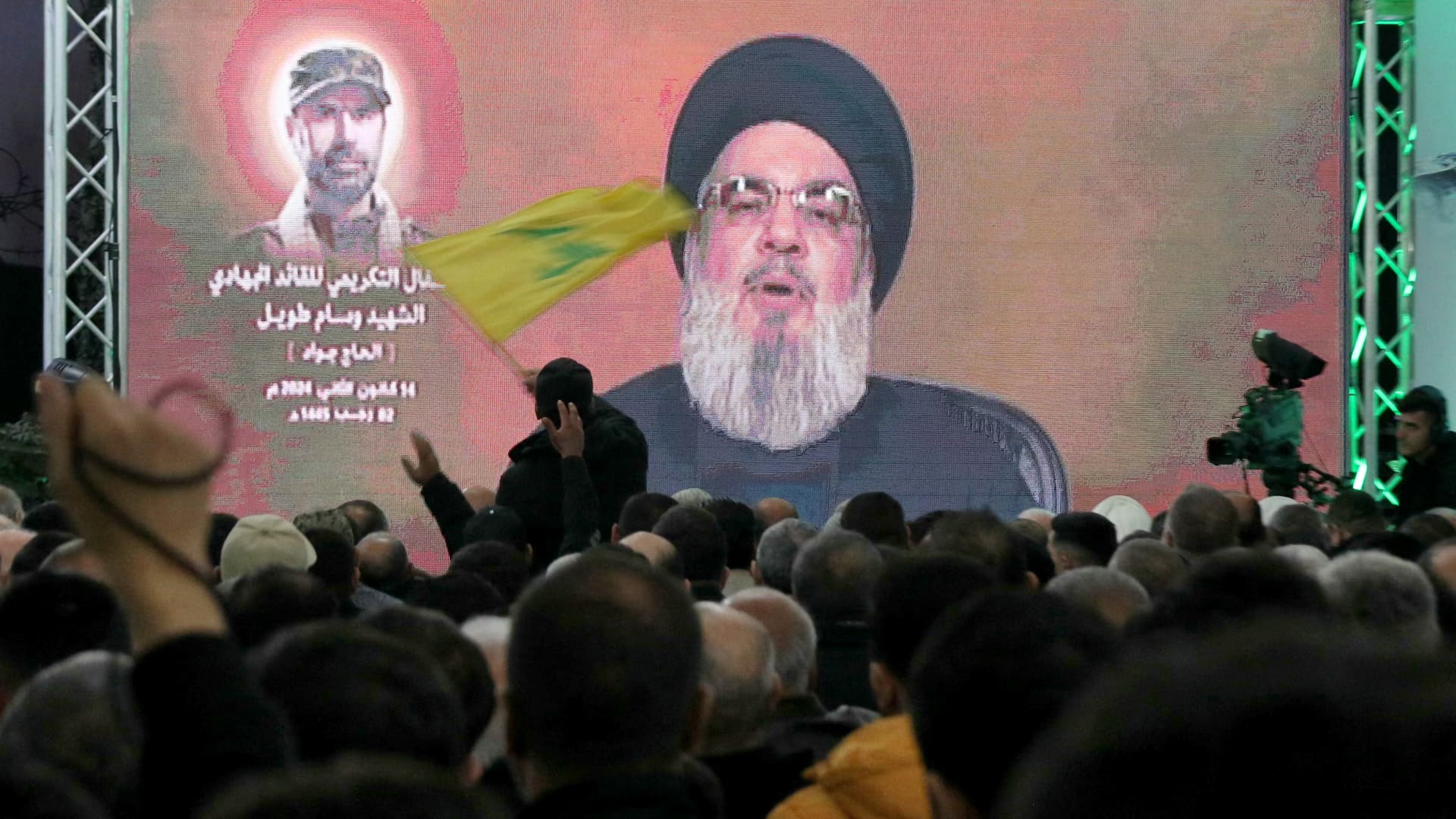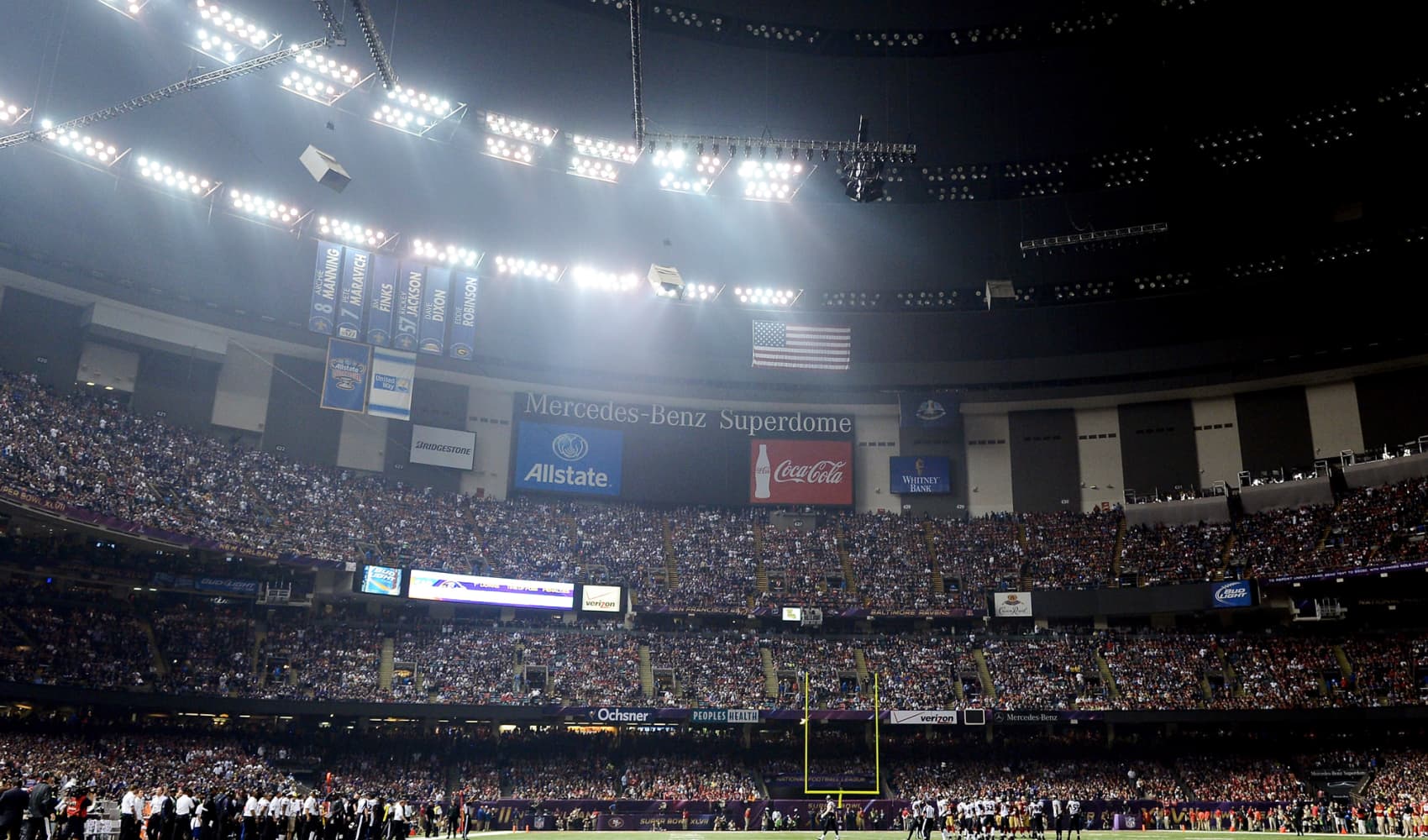
- Washington has dispatched Secretary of State Antony Blinken and other key diplomats to the region for several high-stakes meetings with Arab and Israeli leaders.
- Hezbollah, considered to be among the most heavily armed nonstate groups in the world, is estimated to have 10 times the military capability of Hamas.
- An all-out war between Israel and Hezbollah would be devastating for both sides.
Is a wider Middle East war — expanding beyond the borders of Gaza and Israel — inevitable?
The question is in sharp focus following a series of dramatic escalations around the region in the last few days: targeted killings of Hamas and Hezbollah commanders in Lebanon, a powerful Hezbollah attack on an Israeli Air Force command post, and U.S. and U.K. airstrikes on Houthi targets in Yemen after the Iran-backed rebels attacked dozens of ships in the Red Sea.
Washington has dispatched Secretary of State Antony Blinken and other key diplomats to the region for several high-stakes meetings with Arab and Israeli leaders.
"This is a moment of profound tension for the region," the State Department chief told reporters in Doha, Qatar, on Jan. 7. "This is a conflict that could easily metastasize, causing even more insecurity and suffering."
An all-out war between Israel and Hezbollah — the Iranian-backed Lebanese Shia militant organization designated as a terrorist group by the U.S. and U.K. — would be devastating for both sides.
Hezbollah, considered to be among the most heavily armed nonstate groups in the world, is estimated to have 10 times the military capability of Hamas, and previous wars between Israel and Hezbollah have ended without clear victory on either side.
Lebanon, meanwhile, is in the midst of economic and political crisis, its infrastructure wholly unprepared for a new war.

For Charles Freilich, a former Israeli deputy national security advisor, war between Israel and Hezbollah is practically a foregone conclusion.
Feeling out of the loop? We'll catch you up on the Chicago news you need to know. Sign up for the weekly> Chicago Catch-Up newsletter.
Money Report
"A major escalation is possible at any time, whether by design or miscalculation," Freilich wrote in an opinion piece in the Israeli newspaper Haaretz.
But, he warned, "The war in Gaza pales in comparison to what a war with Hezbollah would look like. Hezbollah's military capabilities vastly exceed Hamas's and Israel has yet to achieve its military objectives even against this lesser actor, despite three months of intensive warfare. ... It will be a war such as Israel has never experienced."
Risk grows 'with every passing hour'
A war between Israel and the Lebanese militant group would likely cause significant damage to national infrastructure like water, electricity and communications, as well as homes and military targets for both sides.
"Thus far the two sides have been careful to avoid the exchange of fire from getting out of control and escalating into a full scale war," said Nimrod Novik, a fellow at the Israel Policy Forum, which is dedicated to advancing a two-state outcome to the conflict.
"However," he added, "with every passing hour the risk of getting there grows, be it due to either side's miscalculation or to a single rocket causing significant casualties that force a massive retaliation."
Hezbollah leader Hassan Nasrallah, while making bombastic warnings in speeches, appears so far unwilling to involve his forces more deeply in fighting with Israel — likely because he is aware of the destruction it would cause to Lebanon and the domestic backlash it would incur. The broader Lebanese public is highly averse to an all-out war with Israel.
The group struck an Israeli army base with drones earlier this month, an attack it said was in response to Israel's assassinations in Lebanon. In a subsequent speech, Hezbollah deputy leader Naim Qassem said the group did not want to take the war beyond Lebanon, "but if Israel expands (it), the response is inevitable to the maximum extent required to deter Israel."

Not wanting to risk the chance of a surprise attack like the Hamas-led rampage on Oct. 7, some in Israel are advocating for Israeli initiation of a war with its northern neighbor — and some observers suspect a key aim here is to pull the U.S. into the fighting.
"It seems clear that there is a significant faction in the Israeli war cabinet that wants to expand the war in an effort to smash and degrade the military power of Hezbollah, its most potent immediate adversary," Hussein Ibish, a senior resident scholar at the Arab Gulf States Institute in Washington, told CNBC.
"The Israeli hawks who want a war with Hezbollah primarily want to degrade and damage Hezbollah's arsenal of missiles and rockets and its fighting ability."
"But," he added, "I also think there is a lurking desire to set in motion a cascade of events that logically lead to a U.S. confrontation with Iran and the long-sought for U.S. attack on Iran's nuclear facilities."
CNBC has reached out to the Israel Defense Forces for comment.
Still, many in Israel are also starkly aware of the dangers of a two-front war — especially when the proclaimed Israeli goals of destroying Hamas' military capabilities in Gaza and freeing the remaining hostages have not been achieved.
"Charging off into another major adventure In Lebanon seems madcap even to quite a few Israelis, not to mention the Biden administration," Ibish said.
U.S. diplomats are hard at work, with U.S. special envoy Amos Hochstein holding multiple meetings with Lebanese and Israeli officials to try to find diplomatic off-ramps. As of Jan. 11, Israeli shelling has killed 25 Lebanese civilians and 140 Hezbollah fighters, while at least nine IDF soldiers have been killed in northern Israel.
"I firmly believe that the people of Lebanon do not want to see an escalation of the current crisis to further conflict," Hochstein told the press in Beirut on Jan. 11.
"I'm hopeful that we can continue to work on this effort to arrive together ... with a solution that will allow for all people in Lebanon and Israel to live with guaranteed security and return to a better future."






